In recent years, there has been a significant shift towards organic and natural food products as consumers become more conscious of what they put into their bodies. One such popular organic product that has gained immense popularity is the organic peanut. Renowned for its nutritional value and health benefits, organic peanuts are a powerhouse of nutrients that offer a plethora of advantages for both the body and mind. In this comprehensive guide, we will delve deep into the world of organic peanuts, exploring their origins, cultivation methods, nutritional composition, health benefits, and how you can incorporate them into your daily diet for a healthier lifestyle. Origins of Organic Peanuts: Peanuts, botanically known as Arachis hypogaea, are actually legumes and not nuts despite their common name. Believed to have originated in South America, peanuts have been cultivated for thousands of years and have played a pivotal role in various cuisines worldwide. Organic peanuts are grown without the use of synthetic pesticides, herbicides, or fertilizers, making them a more sustainable and environmentally friendly option compared to conventionally grown peanuts. Cultivation of Organic Peanuts: Organic peanuts are typically grown using natural farming practices that prioritize soil health, biodiversity, and sustainability. Farmers who grow organic peanuts avoid the use of genetically modified organisms (GMOs) and instead rely on organic fertilizers, compost, and crop rotation to maintain the fertility of the soil. Additionally, organic peanut farmers employ natural pest control methods such as companion planting and beneficial insect release to minimize the impact of pests without resorting to chemical pesticides.
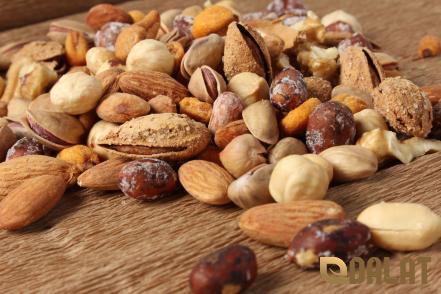
.
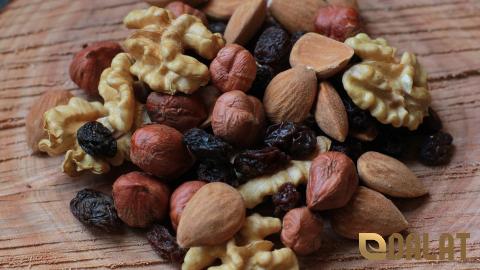 Nutritional Composition of Organic Peanuts: Organic peanuts are a nutritional powerhouse packed with essential nutrients that are beneficial for overall health and well-being. These crunchy legumes are an excellent source of plant-based protein, providing all nine essential amino acids that the body requires for optimal functioning. Organic peanuts are also rich in healthy fats, including monounsaturated and polyunsaturated fats, which can help lower cholesterol levels and reduce the risk of heart disease. Furthermore, organic peanuts are a good source of vitamins and minerals, including vitamin E, B vitamins, magnesium, phosphorus, and potassium. They also contain antioxidants such as resveratrol and flavonoids, which have anti-inflammatory and anti-cancer properties. Overall, organic peanuts are a nutrient-dense food that can help boost immunity, promote satiety, and support overall health. Health Benefits of Organic Peanuts: 1. Heart Health: Organic peanuts are rich in monounsaturated fats, which have been shown to lower LDL (bad) cholesterol levels and reduce the risk of heart disease. Additionally, the presence of antioxidants in organic peanuts can help reduce inflammation and improve heart health. 2. Weight Management: Despite being calorie-dense, organic peanuts can aid in weight management when consumed in moderation. The combination of protein, fiber, and healthy fats in organic peanuts helps promote satiety and prevent overeating, making them a satisfying snack option for those looking to maintain or lose weight. 3. Blood Sugar Regulation: Organic peanuts have a low glycemic index, which means they cause a slower and steadier rise in blood sugar levels compared to high-glycemic foods. This makes organic peanuts a suitable snack choice for individuals with diabetes or those looking to manage their blood sugar levels effectively. 4. Brain Health: The high content of healthy fats, specifically omega-3 fatty acids, in organic peanuts can support brain health and cognitive function. Omega-3 fatty acids are essential for maintaining neuronal structure and function, and regular consumption of organic peanuts can help enhance memory, focus, and overall brain health. 5. Digestive Health: Organic peanuts are a good source of dietary fiber, which plays a crucial role in promoting digestive health.
Nutritional Composition of Organic Peanuts: Organic peanuts are a nutritional powerhouse packed with essential nutrients that are beneficial for overall health and well-being. These crunchy legumes are an excellent source of plant-based protein, providing all nine essential amino acids that the body requires for optimal functioning. Organic peanuts are also rich in healthy fats, including monounsaturated and polyunsaturated fats, which can help lower cholesterol levels and reduce the risk of heart disease. Furthermore, organic peanuts are a good source of vitamins and minerals, including vitamin E, B vitamins, magnesium, phosphorus, and potassium. They also contain antioxidants such as resveratrol and flavonoids, which have anti-inflammatory and anti-cancer properties. Overall, organic peanuts are a nutrient-dense food that can help boost immunity, promote satiety, and support overall health. Health Benefits of Organic Peanuts: 1. Heart Health: Organic peanuts are rich in monounsaturated fats, which have been shown to lower LDL (bad) cholesterol levels and reduce the risk of heart disease. Additionally, the presence of antioxidants in organic peanuts can help reduce inflammation and improve heart health. 2. Weight Management: Despite being calorie-dense, organic peanuts can aid in weight management when consumed in moderation. The combination of protein, fiber, and healthy fats in organic peanuts helps promote satiety and prevent overeating, making them a satisfying snack option for those looking to maintain or lose weight. 3. Blood Sugar Regulation: Organic peanuts have a low glycemic index, which means they cause a slower and steadier rise in blood sugar levels compared to high-glycemic foods. This makes organic peanuts a suitable snack choice for individuals with diabetes or those looking to manage their blood sugar levels effectively. 4. Brain Health: The high content of healthy fats, specifically omega-3 fatty acids, in organic peanuts can support brain health and cognitive function. Omega-3 fatty acids are essential for maintaining neuronal structure and function, and regular consumption of organic peanuts can help enhance memory, focus, and overall brain health. 5. Digestive Health: Organic peanuts are a good source of dietary fiber, which plays a crucial role in promoting digestive health.
..
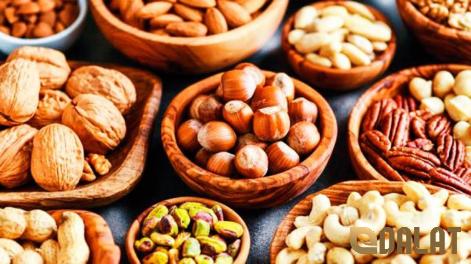 Fiber helps regulate bowel movements, prevent constipation, and support the growth of beneficial gut bacteria, contributing to a healthy digestive system. Incorporating Organic Peanuts into Your Diet: There are numerous creative ways to incorporate organic peanuts into your daily diet to reap their health benefits. Here are some delicious and nutritious ideas: 1. Peanut Butter: Opt for organic peanut butter made from 100% organic peanuts without added sugars or hydrogenated oils. Spread it on whole grain toast, add it to smoothies, or use it as a dip for fruit and vegetables. 2. Trail Mix: Create your own organic trail mix by combining organic peanuts with dried fruits, seeds, and dark chocolate for a nutrient-packed snack on the go. 3. Salad Topping: Sprinkle chopped organic peanuts on top of salads for an added crunch and protein boost. 4. Asian Stir-Fries: Add organic peanuts to Asian-inspired stir-fries for a flavorful twist and extra protein. 5. Energy Bars: Make homemade energy bars using organic peanut butter, oats, seeds, and honey for a nutritious and energizing snack option. Conclusion: Organic peanuts are a versatile and nutritious food that offers a multitude of health benefits for individuals of all ages. From supporting heart health and weight management to improving cognitive function and digestive health, organic peanuts are a valuable addition to a well-rounded diet. By choosing organic peanuts, you not only benefit your health but also support sustainable farming practices that prioritize environmental conservation and soil health. Incorporate organic peanuts into your daily meals and snacks to enjoy their delicious flavor and bountiful nutrients, and embark on a journey towards a healthier and more vibrant lifestyle.
Fiber helps regulate bowel movements, prevent constipation, and support the growth of beneficial gut bacteria, contributing to a healthy digestive system. Incorporating Organic Peanuts into Your Diet: There are numerous creative ways to incorporate organic peanuts into your daily diet to reap their health benefits. Here are some delicious and nutritious ideas: 1. Peanut Butter: Opt for organic peanut butter made from 100% organic peanuts without added sugars or hydrogenated oils. Spread it on whole grain toast, add it to smoothies, or use it as a dip for fruit and vegetables. 2. Trail Mix: Create your own organic trail mix by combining organic peanuts with dried fruits, seeds, and dark chocolate for a nutrient-packed snack on the go. 3. Salad Topping: Sprinkle chopped organic peanuts on top of salads for an added crunch and protein boost. 4. Asian Stir-Fries: Add organic peanuts to Asian-inspired stir-fries for a flavorful twist and extra protein. 5. Energy Bars: Make homemade energy bars using organic peanut butter, oats, seeds, and honey for a nutritious and energizing snack option. Conclusion: Organic peanuts are a versatile and nutritious food that offers a multitude of health benefits for individuals of all ages. From supporting heart health and weight management to improving cognitive function and digestive health, organic peanuts are a valuable addition to a well-rounded diet. By choosing organic peanuts, you not only benefit your health but also support sustainable farming practices that prioritize environmental conservation and soil health. Incorporate organic peanuts into your daily meals and snacks to enjoy their delicious flavor and bountiful nutrients, and embark on a journey towards a healthier and more vibrant lifestyle.
…
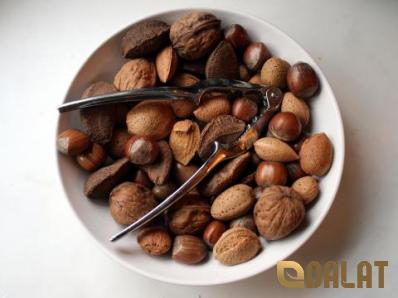 6. Peanut Sauce: Create a flavorful and creamy peanut sauce using organic peanut butter, coconut milk, soy sauce, and spices to drizzle over noodles, tofu, or grilled vegetables for a delectable Asian-inspired dish. 7. Peanut Granola: Make your own peanut granola by combining organic peanuts, rolled oats, honey, and cinnamon, then baking it until golden brown for a crunchy and satisfying breakfast or snack option. 8. Peanut Crusted Chicken: Coat chicken breasts or tofu with crushed organic peanuts mixed with herbs and spices, then bake or pan-fry for a crispy and protein-rich main course that is sure to impress your taste buds. 9. Peanut Smoothie: Blend organic peanuts with banana, spinach, almond milk, and a dash of honey for a delicious and nutrient-packed smoothie that makes a perfect on-the-go breakfast or post-workout refuel. 10. Peanut Noodles: Toss cooked whole grain noodles with a homemade peanut sauce, steamed vegetables, and grilled tofu or chicken for a wholesome and flavorful meal that combines protein, fiber, and healthy fats. By incorporating organic peanuts into your diet in creative and versatile ways, you can enjoy their numerous health benefits while savoring their rich and nutty flavor profile. Whether eaten as a snack, added to meals, or used in recipes, organic peanuts can elevate the nutritional value of your dishes and contribute to a well-balanced and nourishing diet. In addition to their outstanding nutritional profile and health benefits, organic peanuts are also a sustainable and environmentally-friendly food choice. By opting for organic peanuts, you support farmers who adhere to organic farming practices that promote soil health, biodiversity, and long-term sustainability. Organic cultivation methods minimize the use of synthetic chemicals and pesticides, which not only benefits the environment but also reduces your exposure to potentially harmful substances.
6. Peanut Sauce: Create a flavorful and creamy peanut sauce using organic peanut butter, coconut milk, soy sauce, and spices to drizzle over noodles, tofu, or grilled vegetables for a delectable Asian-inspired dish. 7. Peanut Granola: Make your own peanut granola by combining organic peanuts, rolled oats, honey, and cinnamon, then baking it until golden brown for a crunchy and satisfying breakfast or snack option. 8. Peanut Crusted Chicken: Coat chicken breasts or tofu with crushed organic peanuts mixed with herbs and spices, then bake or pan-fry for a crispy and protein-rich main course that is sure to impress your taste buds. 9. Peanut Smoothie: Blend organic peanuts with banana, spinach, almond milk, and a dash of honey for a delicious and nutrient-packed smoothie that makes a perfect on-the-go breakfast or post-workout refuel. 10. Peanut Noodles: Toss cooked whole grain noodles with a homemade peanut sauce, steamed vegetables, and grilled tofu or chicken for a wholesome and flavorful meal that combines protein, fiber, and healthy fats. By incorporating organic peanuts into your diet in creative and versatile ways, you can enjoy their numerous health benefits while savoring their rich and nutty flavor profile. Whether eaten as a snack, added to meals, or used in recipes, organic peanuts can elevate the nutritional value of your dishes and contribute to a well-balanced and nourishing diet. In addition to their outstanding nutritional profile and health benefits, organic peanuts are also a sustainable and environmentally-friendly food choice. By opting for organic peanuts, you support farmers who adhere to organic farming practices that promote soil health, biodiversity, and long-term sustainability. Organic cultivation methods minimize the use of synthetic chemicals and pesticides, which not only benefits the environment but also reduces your exposure to potentially harmful substances.
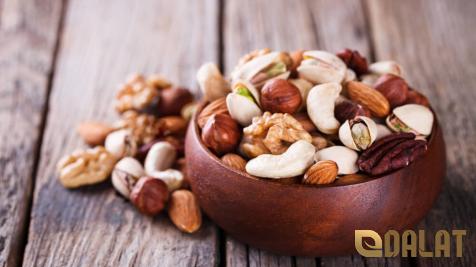
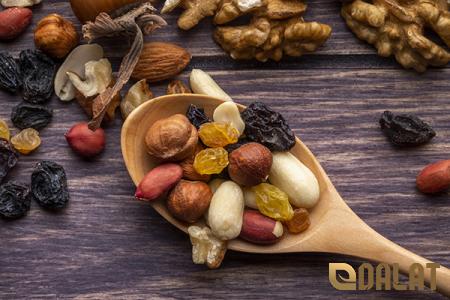
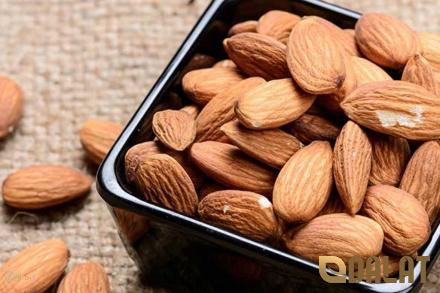
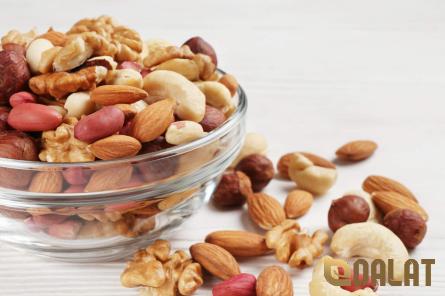
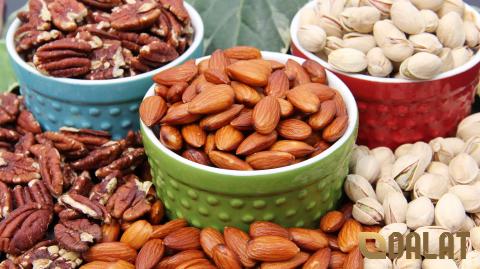
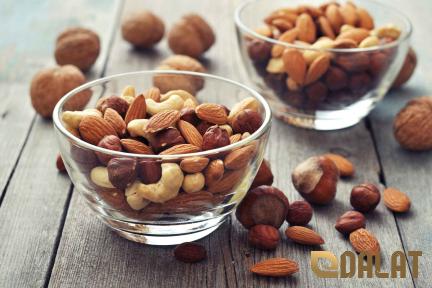
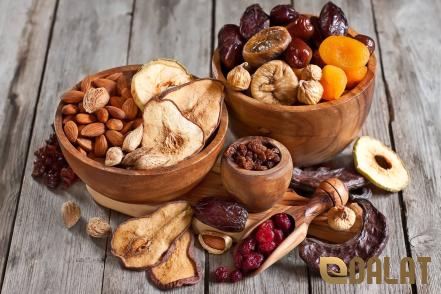
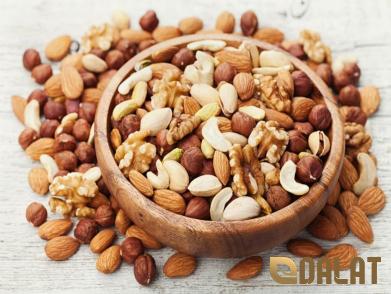
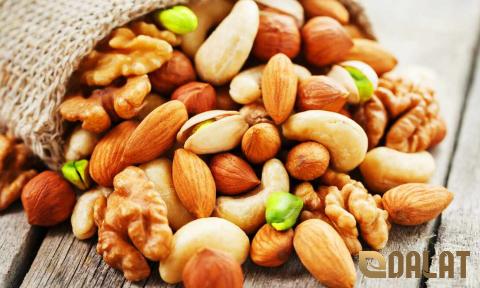
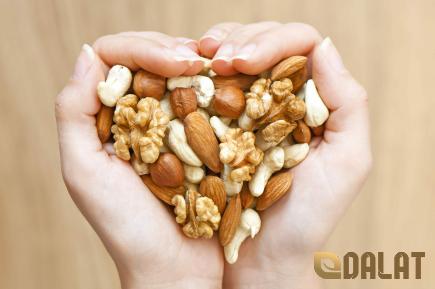
Your comment submitted.